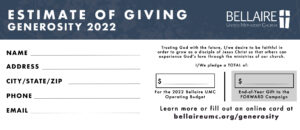What is tithing?
Tithing–giving ten percent–is a concept that is familiar to many Christians, but for the vast majority of Christians in America, it is not standard practice. Research reveals that Christians in America, though more affluent than ever before, are giving a smaller percentage of our income to the church and to charitable organizations than ever before. As a whole, we currently give a smaller percentage of our income to the church than we did at the lowest point of the Great Depression. Currently, mainline Protestants-Episcopalians, Lutherans, Presbyterians, and Methodists-give between 1.0% and 1.1% of total income to the church. During the Great Depression, we gave 3.4% of total income. I know all the reasons why folks might not tithe, but the reality is that the vast majority of professing Christians in America do not tithe.
Nonetheless, giving ten percent-a tithe-of one’s total income is indeed the scriptural standard. It seems pretty simple on its face, but talking about tithing always brings up a whole bunch of questions. Here are some of the most common ones I hear:
Am I supposed to give 10% to the church? Or 10% total-to the church and any other religious, spiritual, or charitable organizations that are doing good work? When the tithe was established, there was no such thing as the church that we know. The tithe began among the Jewish people, our spiritual ancestors, and the 10% that God instructed them to give was to be given every year to support the priests. In God’s design, the priestly families hadn’t been given any land, so the tithe of the people was to support the priests, the temple, and the worship of God through the faith community. The way I read that, and the way I practice it, is that 10% of my total income goes to the church. Additional support to other worthy organizations-like the colleges we attended, Methodist Children’s home, our conference’s Emerging Leaders Endowment-is over and above that 10%.
Another question I hear fairly often: Is that 10% pre-tax or post-tax? A pastor that I know tells the story of how her family began tithing. Money had always been tight for her and her husband; they had some serious debt; full-time daycare payments-all the bills and stresses about money that you and I know well. She had a powerful experience that convinced her they needed to get their spending under control and start tithing. They didn’t know how it was going to work out exactly, but they were convinced and they just started giving 10% of each paycheck to the church she served.
They needed help making a plan for the future, so they enlisted a financial planner to assist them. The financial planner arrived at their home with a folder full of plans about what a young family should be thinking about: saving for college, retirement, and life insurance. He looked at their pay stubs, their credit card bills, and then asked about charitable giving. This pastor was worried to tell him about their tithing plans, because having seen their financial situation, she was pretty sure he would point out that charitable giving made no sense right now. Instead, the planner responded, “Is that ten percent before or after taxes?” “After taxes, of course. We’re religious, but we’re not crazy.” “Well, that’s fine,” he said, “If all you want is an after-tax blessing.”
So pre-tax or post-tax? Well, that’s a decision we have to make, but what I know is that when tithe pre-tax, we give more to God. When we tithe post-tax, we give less to God.
A final question that I often hear about tithing: Isn’t the tithe an Old Testament concept? Aren’t we free from those rules and regulations? It’s true that Jesus never talks about the tithe. He never asks or instructs anyone to give 10%. Maybe that’s because tithing was assumed in that culture-standard practice. I actually think that Jesus never talks about the tithe, because he wouldn’t ask his followers for something so small. Following Jesus requires radical sacrifice. When we say yes to Jesus’ leading in our lives, it’s an all-in sort of thing-not two percent or ten percent, not pre-tax or post-tax. It’s all that we have and all that we are. When Jesus visits Zaccheus, Zaccheus says that he will give half of his possessions to the poor. Jesus says good job. When Jesus encounters a rich young ruler, he says, “Sell all you have and give it to the poor.” Jesus doesn’t talk about the tithe-10%-Jesus talks about fifty percent, one hundred percent.
A number of months ago, I heard a man tell the story of the connection between faith and money in his own life. When he was a boy, his father taught him to tithe. Every time he got an allowance or made money doing chores around the neighborhood, ten percent went into a jar that they would take to church as an offering. Years later, after the man was grown, he was talking with his father one day, with understandable pride in his voice, he said to his father, “Dad, you taught me to tithe when I was a little boy, and I want you to know that I have tithed every year since then. Even to this day, 10% of every paycheck goes to the church.” And his dad looked at him a little puzzled and said, “Oh, son, that’s just where we start. I thought for sure you would be giving more than that by now.



